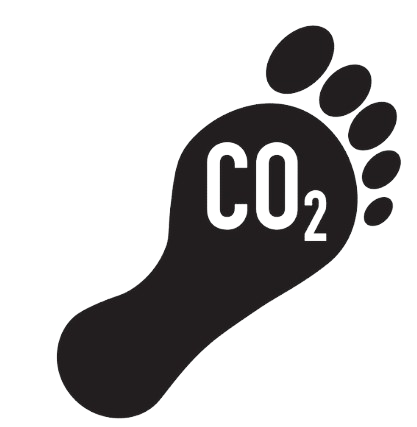How a Summer heatwave will feel in the future across the UK if we donít slow the impact of Global Warming
The Met Office has just issued its first ever “amber extreme heat warning” for the UK, with temperatures set to rise to 33°C in the likes of Wales, south west England, and parts of southern and central England.
According to their work with the BBC, the Met office predicts that without cuts in emissions, global temperatures could rise by 2°C or even 4°C.
This is due to the effects of global warming, with more and more greenhouse gases (such as carbon dioxide and methane) being trapped in the atmosphere due to human activity that has taken place since the growth of industrialisation in the 19th century.
But what does that mean for our Summer heatwaves like the one that we’re in now?
Kedel have taken the postcodes of major airports around the UK, and discovered just how warm our major cities could get with as little as a 2°C increase in temperature.
All calculations have been rounded to the nearest whole number, and temperatures of other countries include average temperature and average maximum temperature for various times of the year, while UK temperatures are relative to the hottest point in Summer.
Dundee
Highest recent temperature (in the past 30 years) : 28°C
Predicted future temperature : 31°C
This temperature is the same as the current average temperature for January in Dampier, Australia.
(https://en.wikipedia.org/wiki/List_of_cities_by_average_temperature)
Glasgow
Highest recent temperature (in the past 30 years) : 28°C
Predicted future temperature : 31°C
This temperature is the same as the current average temperature for September in Phoenix, Arizona, USA.
(https://en.wikipedia.org/wiki/List_of_cities_by_average_temperature)
Belfast
Highest recent temperature (in the past 30 years) : 28°C
Predicted future temperature : 30°C
This temperature is the same as the current highest average temperature for July in New York, USA.
(https://www.metoffice.gov.uk/weather/travel/holiday-weather/americas/usa/newyork)
Newcastle
Highest recent temperature (in the past 30 years) : 28°C
Predicted future temperature : 31°C
This temperature is the same as the current highest average temperature for July in Majorca, Spain.
(https://www.metoffice.gov.uk/weather/travel/holiday-weather/europe/spain/majorca)
Manchester
Highest recent temperature (in the past 30 years) : 33°C
Predicted future temperature : 35°C
This temperature is the same as the current highest average temperature for July in Bodrum, Turkey.
(https://www.metoffice.gov.uk/weather/travel/holiday-weather/europe/turkey/bodrum)
Liverpool
Highest recent temperature (in the past 30 years) : 33°C
Predicted future temperature : 35°C
This temperature is the same as the current highest average temperature for Summer in Sedona, Arizona.
(https://www.visitarizona.com/plan/weather/)
Birmingham
Highest recent temperature (in the past 30 years) : 34°C
Predicted future temperature : 36°C
This temperature is the same as the current highest average temperature for Summer in Dallas, Texas, USA.
(https://weatherspark.com/y/8813/Average-Weather-in-Dallas-Texas-United-States-Year-Round)
Norwich
Highest recent temperature (in the past 30 years) : 34°C
Predicted future temperature : 36°C
This temperature is the same as the current average temperature for June in Kuwait.
(https://en.wikipedia.org/wiki/List_of_cities_by_average_temperature)
Cardiff
Highest recent temperature (in the past 30 years) : 32°C
Predicted future temperature : 34°C
This temperature is the same as the current highest average temperature for July in Tunis, Tunisia.
(https://www.metoffice.gov.uk/weather/travel/holiday-weather/africa/tunisia/tunis)
Luton
Highest recent temperature (in the past 30 years) : 37°C
Predicted future temperature : 38°C
This temperature is the same as the current highest average temperature for June in Las Vegas, Nevada, USA.
(https://www.visitlasvegas.com/experience/post/las-vegas-weather/)
Bournemouth
Highest recent temperature (in the past 30 years) : 34°C
Predicted future temperature : 36°C
This temperature is the same as the current average temperature for July in Saudi Arabia.
(https://en.wikipedia.org/wiki/List_of_cities_by_average_temperature)
Despite increasing temperatures creating warmer and longer summers, unfortunately recurring heat waves also create more problems for both Earth and its inhabitants.
For example, heat waves cause droughts as well as rising sea levels and thawing glaciers. They also create dangerous conditions for those living through them without proper ways of keeping safe and cool.
Speaking about the damaging effects of global warming, Lewis Walch, one of the 3 brothers who founded Kedel says:
“Sadly, global warming is caused by many different forms of human consumption and activities, from driving cars, to the way we decorate our homes and gardens. It’s always best to shop sustainably if you can, opting for products made with recycled materials or those that allow you to maintain a reduced carbon footprint. To prevent our world from heating up and causing irreversible damage, we all need to do our part and try to be conscious of our own impact on the environment”.
Sources:
- https://rmets.onlinelibrary.wiley.com/doi/10.1002/joc.6726
- https://www.metoffice.gov.uk/weather/travel-and-events/holiday-weather/wheres-hot-when/july
- https://www.meteocentre.co.uk/weather-archive/city-detail/033233-99999/liverpool
- https://www.currentresults.com/Weather/Europe/Cities/temperature-july.php
- https://en.climate-data.org/north-america/united-states-of-america/nevada/las-vegas-723/

.png)

 100% Recycled Plastic
100% Recycled Plastic Will Never Rot
Will Never Rot 25 Year Guarantee
25 Year Guarantee Low Carbon Footprint
Low Carbon Footprint